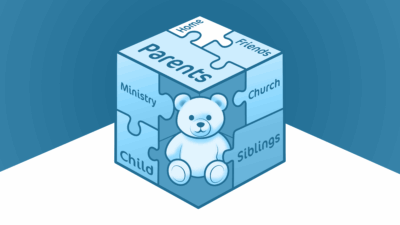
Suggested Best Practices for Use of the DOB and SSN in Searching for Criminal Records

Ryan Carter is a seasoned leader with over 17 years of experience helping churches create safer environments where families can thrive. Much of his impact has come through his leadership at Protect My Ministry, a trusted solution from Ministry Brands specializing in background screening, risk management, and more. Based in Tampa, Florida, Ryan is more than a leader in church safety—he’s a devoted husband and proud father of four. In his free time, he enjoys channeling his competitive spirit into Spartan races, embracing both physical challenge and mental toughness. Ryan’s journey includes a broad background in recruiting, training, quality control, and strategic planning, all of which fuel his passion for helping ministries grow stronger, safer, and more equipped to serve.
Screening and training of childcare workers is a must for any child- and youth-serving organization. Parents entrust our organizations with the care of their children, so we have a responsibility to be diligent in discerning who has access to those children. If our ministries are to be safe places for kids to hear the gospel, and we are to be good stewards of the lives entrusted to our care, then child safety cannot be an afterthought or “bonus” feature of our programming. It must be central.
A rigorous screening process would include an application, reference checks, interview, and background check. Every staff member and volunteer who will work with children should be screened according to these measures. But it’s not enough to initiate the screening process – the materials returned for each applicant must be reviewed for yellow flags that warrant a follow-up conversation or red flags that may disqualify them from service with children.
Background checks, while insufficient as a sole screening measure, are an important part of the overall screening process. There are three identifiers used in background screenings: Proper name, Date of birth (DOB), and Social Security number (SSN). A better understanding of how these identifiers are used by background screening providers can help ensure you receive a full and accurate report and help you better understand the results.
Proper Name & Date of Birth
All criminal cases are filed in the courts under an individual’s proper name (first and last) and DOB at the time of arrest or direct filing. Please note that a Social Security number is not typically available as an identifier on a court’s public access system. Since the proper name and DOB are the primary identifiers available when searching for criminal cases, Protect My Ministry recommends that these primary IDs be accurately determined before an end user (client) submits any background report request. Failure to submit the true name and DOB will often result in a missed criminal record.
Some common methods available when it comes to accurately determining an individual’s true name and DOB is to request a copy of their driver’s license, passport, or birth certificate before submitting a background request. Potential employees and volunteers may be inconvenienced by some requirements organizations may set forth as part of the screening process, however, these inconveniences are minor compared with the potential risk and consequences that could result in placing an individual in a sensitive position because of a missed criminal record due to erroneous primary identifiers used to conduct the criminal search.
Social Security Number
As far as the SSN being required to conduct a criminal search, while it is not “mandatory”, failing to provide one does “weaken” the overall search capabilities of the databases. Criminal records are searched by name and DOB only, however the SSN can also be used to pull the address history first, showing all names used, and add the newfound alias name combinations into the search parameters before running it against our National Criminal and National Sex Offender databases.
So, consider the following example of how we handle a Jane Doe request with a social provided: The Protect My Ministry system will pull that address history (this is based on bill pay tied to your SSN) first and find that Jane Doe has gone by Jane Miller and Jane Williams. Then the system will search Jane Doe, Miller, and Williams in National Criminal and Sex Offender databases, thus providing a more thorough search at no additional fees or data entry to you.
Lastly, the address history that is based on the SSN is also a good way for you to verify that someone is who they say they are and where they live. This is important, since the National Criminal and Sex Offender databases are driven or searched by name and DOB only, no SSN.
- “Let the Children Come”: A Vision for the Church to Value and Protect the Lives of ChildrenJesus’ words still echo through time: “Let the little children come to me, and do not hinder them, for the kingdom of heaven belongs to such as these” (Matthew 19:14). These words were not just a gentle invitation—they were a command. A command to the Church to make room, to open arms, to clear the way. Yet in too many places, we’ve allowed hindrances to remain. We’ve allowed silence, fear, neglect, and even abuse to take root where there should be protection, joy, and peace.
- Insurance and Accountability (Part 2): A Return to the Biblical Principles of Stewardship and JusticeWhen the Bible and prayer were removed from public schools in the early 1960s, secular humanism filled the void. Over time, the influence of Greek philosophy and worldly ideologies seeped back into the church—just as in Paul’s day—lulling believers into thinking life can flourish apart from God’s commands. Ken Ham reminds us that Genesis 1–11 outlines both righteous judgment and the futility of hiding from God. A generation raised without a biblical worldview inevitably produces leaders unprepared to deal with sin, resulting in weak protocols and poor accountability in the church.
- Insurance and Accountability (Part 1): Examining the Causes of the Abuse Crisis in ChurchesIt is no secret that houses of worship are unfortunately engaged in a blistering crisis of adult and child sexual abuse. Beyond the atrocity of the abuse itself, some churches are increasingly guilty of concealing abuse and of placing unbiblical trust in man’s systems rather than God’s Word. Many American churches appear to be caught up in the postmodern culture of “my truth,” giving subjective feelings more authority than objective,
- Resilient Discipleship: Why Readiness Matters for the Church TodayIn recent months, tragic headlines have reminded us again that churches are not immune to risk. From violence and fire to medical emergencies and storms, disruption often arrives without warning. Yet too often, churches either avoid the conversation out of fear or delegate responsibility to a small team of volunteers. The result is that when crisis comes, congregations are left unprepared, anxious, and distracted from their calling.
- Responding to Child-on-Child Sexual MisconductWhile abuse of a child by an adult is terrible, it’s usually straightforward to evaluate what is happening. But what about sexual misconduct between children? Is it always abuse? No. Is it always illegal? No. And what should we do about it? The impact on children’s lives is not measured by whether the actions are abuse or a crime—so we must take it seriously.[1] As we evaluate how to respond, it may help to use as an example several common situations. We’ll take the perspective of behavior that is discovered by a church or ministry, but parents will also have to evaluate situations they uncover.



